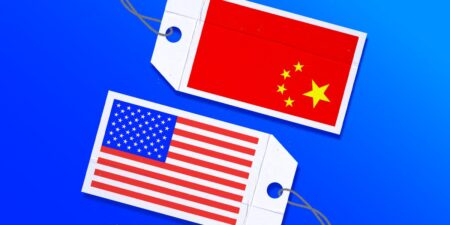This as-told-to essay is based on a conversation with Roman Vernidub, a Ukrainian-born entrepreneur who has lived in South Korea for 17 years. It has been edited for length and clarity.
I came to South Korea as an 18-year-old exchange student from Russia in 2008 to study Asian studies and international relations.
My Korean language proficiency was still very low then, and I worried that communicating would be difficult.
But I was surprised that people were friendly and eager to help, even though I didn’t speak Korean.
At the same time, I saw that Korean society was super, super competitive. People lined up in the university libraries, sat on the benches, and studied so hard.
They called it “pali-pali”— quick-quick. For some foreigners, it’s actually quite stressful. But for me, it’s a society where I can actually succeed, and I saw potential in this human capital of Korea.
I stayed for a master’s degree in economics in 2010, then began a Ph.D. I got a job at the United Nations in Bangkok. I went as an economics research intern for around six months, but I really missed Korea a lot.
I decided not to continue with my job and came back to Korea to build my business.
Starting out, investors were more curious about me than my business
Ten years ago, there was a huge boom in Korean beauty products. Many of my friends and relatives started to ask me to buy them cosmetics, and I saw a big potential in the business.
I learned about Korean injectable products like fillers and Botox, and I decided to open a company in this area because of the high competitive edge and high barrier to entry.
For four years, I bootstrapped the company. As a foreigner in Korea — especially a Caucasian foreigner — I stood out. Korean banks and early-stage investors were not interested in me or other foreigners, because they think we are risky to do business with.
If a foreigner opens a company here, it’s almost impossible to get a loan from the bank, even if your company is profitable.
When I started pitching to investors, they told me they had never seen a foreigner pitch in Korean before.
Instead of asking about the business, many asked more about me: Why was I doing business in Korea? If they invested, would I run away to Russia or Ukraine? The questions were somewhat ridiculous and childish.
Learning ‘nunchi’ taught me how to bridge Korean and foreign business culture
In Korea, there’s a concept called “nunchi” — the ability to read the room. In Asian culture, much of the meaning is conveyed through hints, tone, behavior, and atmosphere.
When I was a student, I worked part-time as a business interpreter for foreigners coming to Korea. I noticed how impatient some of them would get during negotiations. Korean counterparts usually take longer to say yes or no. Sometimes they say yes in the meeting, but later change their minds.
For me, I already felt the “no” in the beginning, but they just said yes because they didn’t want a confrontation. For my clients, it felt like a double-face.
“Nunchi” is a form of strategic intuition adapted to the Korean cultural code, where success often depends not on price or terms, but on knowing when to remain silent, when to yield, and when to stand firm.
Without a certain level of “nunchi,” it’s very difficult to build a successful business in Korea.
By using my cultural knowledge, I can play a good role in bridging Korean products and technology with foreign markets.
Half my life has been in Korea — and I’m now a citizen
I have lived in Korea half my life. Korean is my first working language, apart from English, and my entire network is here. I haven’t been back to Russia or Ukraine in seven years. My roots are in Korea. Internally, I feel Korean.
Even my friends, when we go out to drink, say I behave like Koreans. My manners, all the etiquette — they always say that I’ve become fully Korean here already.
Recently, I passed the Korean naturalization exam and received my Korean passport.
The process took me almost two years: I took a test in Korean history and language proficiency, and did an interview with the Ministry of Justice. I passed with the highest scores.
I plan to stay here and keep building my business. Korea is a great environment for businesses, even for foreigners — but you need to understand society, speak the language, and build good connections.
Do you have a story to share about building a business in Asia? Contact this reporter at [email protected].
Read the full article here
















